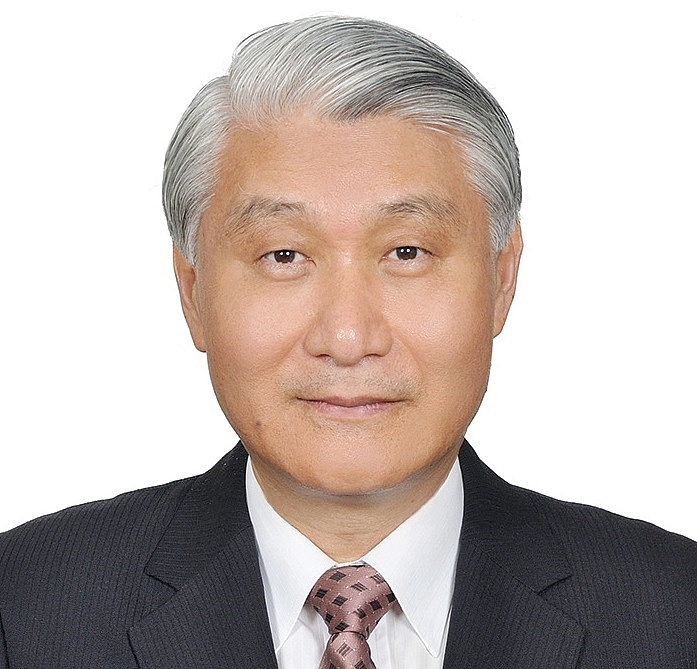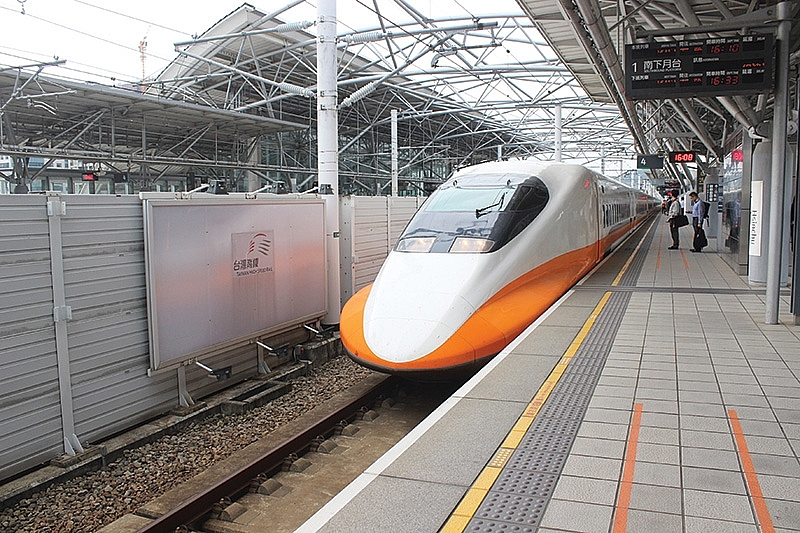 |
| Shih Rui-Chi |
Taiwan is one of Vietnam’s largest foreign investors, having contributed significant foreign direct investment over the past 30 years. Taiwan’s interest in Vietnam commenced as early as 1989, even before Vietnam entered the World Trade Organization in 2007. That year, Taiwan’s investment in Vietnam was just one project with the modest investment capital of $1.5 million. This figure has dramatically increased since then, particularly since the early 2000s. Taiwan has often been the first or the second-biggest investor in Vietnam in terms of annually registered investment capital. This position only dropped to fifth in 2006, behind South Korea, Hong Kong, Japan, and the United States.
According to the Vietnamese Ministry of Planning and Investment, as of June 20, 2019, Taiwan was the fourth-largest investor in Vietnam, with 2,645 valid investment projects registered at $31.9 billion, making up more than 9 per cent of the total registered capital inflows into Vietnam since 1988, trailing behind South Korea, Japan, Singapore, and followed by the British Virgin Islands.
Most of Taiwanese investment in Vietnam goes to the industrial sector, particularly light industries such as textiles, footwear, and furniture. This sector absorbed about 70 per cent of total accumulated investment capital. The second-largest portion of Taiwanese investment went into the service sector while the remainder went into the primary sector of agriculture, forestry, and aquaculture. The latest development trends have been showing Taiwanese investment moving towards the electronics sector amidst the US-China trade dispute.
 |
| Taiwan has been one of the most active foreign investors in Vietnam, and current developments promise to lend them even more dynamism |
Together with other investors, Taiwanese investment has made considerable contributions to the course of industrialisation and modernisation of Vietnam. Although Taiwanese-invested projects in Vietnam are mostly of small and medium size, they did help to create more than 1.4 million jobs.
The Comprehensive and Progressive Agreement for Trans-Pacific Partnership (CPTPP) took effect in Vietnam on January 14, 2019, and the EU-Vietnam Free Trade Agreement (EVFTA) was officially signed in Hanoi on June 30, 2019. Together, the EVFTA and CPTPP members form a giant market with one billion consumers, accounting for more than 30 per cent of the global trade turnover. The CPTPP and the EVFTA are expected to bring about many opportunities for Vietnamese enterprises, especially those involved in exporting major products like seafood, apparels, footwear, and farm produce.
As new generation FTAs, both the CPTPP and the EVFTA are expected to have a comprehensive impact on Vietnam’s economic and social activities. In particular, it will create opportunities to expand the market for many sectors, including agricultural products. Once the EVFTA takes effect, it will be like the CPTPP: over 99 per cent of tariffs on goods from both sides will be removed. In addition, enterprises not only from the signatories, but also from third countries such as Taiwan will strongly be attracted to invest in Vietnam in order to make full use of the FTAs. This is also a good opportunity for businesses to participate more deeply in the regional and global supply chains.
Currently, many Taiwanese investors are coming to Vietnam to seek business opportunities even without the EVFTA and the CPTPP. Competitive human resources, economic and market growth, and a dynamic society are considered factors that make Vietnam an attractive destination for Taiwanese companies to establish their business. Other positive factors include affordable labour costs and political stability. However, the major boost in international integration via the EVFTA and the CPTPP is expected to see more vigorous trade and benefit for foreign enterprises, which makes Vietnam more attractive to Taiwanese investors.
As of 2018, Taiwan’s accumulated investment capital in China amounted to $183 billion, which accounts for 56.5 per cent of its total outbound investment, while it was only 9.6 per cent for Vietnam. However, given the trade dispute between the US and China, and the rising labour costs in China, we will likely see much of the Taiwanese investment shift to countries like Vietnam, which boasts abundant human resources and better integrated economies.
Vietnam’s signing of the EVFTA and the CPTPP has made Taiwanese investors very excited, because they will both help these investors diversify their products and increase their marketing capacity to compete with global businesses. Taiwanese investors will also have a chance to penetrate the markets of members to these two treaties.
I expect Taiwanese investment in Vietnam to grow and pour millions of US dollars into different projects, due to the EVFTA and the CPTPP.
In the meantime, Vietnam is expected to remain a hotbed for foreign investment. The country has been attracting capital in virtually all sectors, making it an all-rounder for investors. However, Taiwanese investors should be reminded that as the market matures, the government has begun prioritising high-value foreign investment in advanced technology and manufacturing, tourism, and high-tech farming.
Vietnam has learned from the past 30 years that future foreign-invested projects should be linked with sustainable development, green growth, and should facilitate economic restructuring and the turn towards Industry 4.0.
Therefore, Taiwanese companies must change their mindset and strengthen their capabilities on intelligent manufacturing and automation. Also to achieve the goal of sustainable operation in Vietnam, Taiwanese manufacturers should fulfill their social responsibilities and maintain harmonious relations with local people and communities as well.
Vietnam is endeavouring to embrace international integration and is at a decisive juncture in becoming the model of developing countries, which I believe would certainly be successful. Vietnam as a transitional and developing economy offers ample business opportunities in many sectors like electronics, infrastructure, housing, tourism, property, services, healthcare, and education and training.
Therefore, there is much potential for Taiwanese companies to invest in Vietnam to take advantage of the stable political and economic environment and potential market access due to FTAs that Vietnam has concluded recently such as the CPTPP and the EVFTA.
Taiwan admires Vietnam’s courage to deeply engage with the integration of world economy by taking part in the CPTPP, the EVFTA and the Regional Comprehensive Economic Partnership. Taiwan also stands in line with such objectives to promote economic integration, liberalise trade and investment and promote sustainable growth.
Taiwan is a free and open market economy, and it is Taiwan’s wish to join the CPTPP which would create further trade and investment synergies, open up new business opportunities, and contribute directly to the Asia-Pacific’s economic vitality and continued prospects for growth. Taiwan’s key position in value chains, technological capabilities, and outbound foreign investment have played important roles in Vietnam’s development. VIR
Shih Rui-Chi
Representative of the Taipei Economic and Cultural Office in Vietnam
 Shih Rui-Chi, representative of the Taipei Economic and Cultural Office in Vietnam, writes about the prospects of Taiwanese investment in Vietnam in the context of the country entering the CPTPP and the EVFTA this year.
Shih Rui-Chi, representative of the Taipei Economic and Cultural Office in Vietnam, writes about the prospects of Taiwanese investment in Vietnam in the context of the country entering the CPTPP and the EVFTA this year.